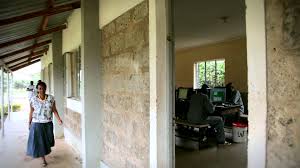Government Grants
Business Grants
Home Owner Programs
Federal Programs
About Us
Facilitating Behavior Change Training 2.0
By the end of 2018, probation supervision populations grew to 4. 4 million while parole supervision populations grew to over 800,000; however, we have seen a slow decline in this number in recent years (Kaeble and Alper 2020).[1] In response to these numbers, the community supervision profession has
used both risk management and behavioral change strategies to manage probation and parole populations; however, recent correctional research favors the use of core correctional interventions as they consistently facilitate reductions in recidivism when applied correctly.
Based on social learning theory, Core Correctional Practices (CCPs) are behavioral change strategies designed to improve the outcomes of therapeutic interventions for persons under community supervision.
Andrews and Kiessling (1980) introduced CCPs as five distinct practices:
(1) effective use of authority, (2) prosocial modeling and reinforcement, (3) problem solving, (4) use of community resources, and (5) quality of interpersonal relationships between staff and offenders.[2] Studies have shown that staff who use CCPs while interacting with individuals under their supervision produce positive outcomes.
CCPs help staff specifically target both cognitive and behavioral aspects of antisocial behaviors.
The success of CCPs has led to the development of several training curricula incorporating CCPs and has created demand for this type of training.
However, most of these curricula assume that an organization is ready to implement CCPs and has the desired environment to support these practices.
The reality is that some community supervision organizations struggle to implement CCPs because they are operating in environments that promote compliance-driven practices enforced by punitive responses to non-compliant behavior.
Members of the Executive Sessions on Community Corrections at the Harvard Kennedy School explored the role of community corrections, and after much deliberation, they developed a vision and provided essential guidance to change practices through comprehensive paradigm shifts.
Noted positions of the members of the Executive Sessions are that “all people under community supervision should be viewed as having the potential to succeed” and agency practice should emphasize “behavior change by providing robust opportunities for, and rewarding progress.”[3] In 2020 and 2021, NIC partnered with the Community Resource for Justice (CRJ) and developed the “Facilitating Behavior Change” training course, a blended 32- hour curriculum consisting of eleven modules, encompassing both virtual-led instructor training (VILT) and instructor-led training (ILT).
Specifically, the training focuses on developing professional alliance (role clarification/relationship skill building), cognitive restructuring, and the effective use of behavior reinforcement and disapproval techniques.
The training draws on the latest research on cognitive interaction skills, implementation science, and guided skill practice to facilitate knowledge transfer to staff providing direct supervision to persons incarcerated and those under community supervision.
It uses NIC’s Instructional Theory into Practice (ITIP) model and other adult learning techniques to engage learners and provide guided practice with instructional input.
The training is a mix of tutorials, knowledge assessments, and intersession assignments that focus on participant skill building, including direct coaching and feedback.
Facilitating Behavior Change is a specialized training resource developed to provide correctional staff with the required knowledge, skills, and abilities to incorporate CCPs into one-on-one supervision interactions with persons incarcerated or under community supervision.
[1] Kaeble, D and Alper, M (2020) Probation and Parole in the United States,2017-2018, Department of Justice [2] Andrews, D.A., & Kiessling, J.J (1980) Program Structure and effective correctional practices:
A summary of the CaVIC research.
[3] Executive Session on Community Corrections.
Toward an Approach to Community Corrections for the 21st Century:
Consensus Document of the Executive Session on Community Corrections.
Program in Criminal Justice Policy and Management, Harvard Kennedy School, 201 7.
Based on social learning theory, Core Correctional Practices (CCPs) are behavioral change strategies designed to improve the outcomes of therapeutic interventions for persons under community supervision.
Andrews and Kiessling (1980) introduced CCPs as five distinct practices:
(1) effective use of authority, (2) prosocial modeling and reinforcement, (3) problem solving, (4) use of community resources, and (5) quality of interpersonal relationships between staff and offenders.[2] Studies have shown that staff who use CCPs while interacting with individuals under their supervision produce positive outcomes.
CCPs help staff specifically target both cognitive and behavioral aspects of antisocial behaviors.
The success of CCPs has led to the development of several training curricula incorporating CCPs and has created demand for this type of training.
However, most of these curricula assume that an organization is ready to implement CCPs and has the desired environment to support these practices.
The reality is that some community supervision organizations struggle to implement CCPs because they are operating in environments that promote compliance-driven practices enforced by punitive responses to non-compliant behavior.
Members of the Executive Sessions on Community Corrections at the Harvard Kennedy School explored the role of community corrections, and after much deliberation, they developed a vision and provided essential guidance to change practices through comprehensive paradigm shifts.
Noted positions of the members of the Executive Sessions are that “all people under community supervision should be viewed as having the potential to succeed” and agency practice should emphasize “behavior change by providing robust opportunities for, and rewarding progress.”[3] In 2020 and 2021, NIC partnered with the Community Resource for Justice (CRJ) and developed the “Facilitating Behavior Change” training course, a blended 32- hour curriculum consisting of eleven modules, encompassing both virtual-led instructor training (VILT) and instructor-led training (ILT).
Specifically, the training focuses on developing professional alliance (role clarification/relationship skill building), cognitive restructuring, and the effective use of behavior reinforcement and disapproval techniques.
The training draws on the latest research on cognitive interaction skills, implementation science, and guided skill practice to facilitate knowledge transfer to staff providing direct supervision to persons incarcerated and those under community supervision.
It uses NIC’s Instructional Theory into Practice (ITIP) model and other adult learning techniques to engage learners and provide guided practice with instructional input.
The training is a mix of tutorials, knowledge assessments, and intersession assignments that focus on participant skill building, including direct coaching and feedback.
Facilitating Behavior Change is a specialized training resource developed to provide correctional staff with the required knowledge, skills, and abilities to incorporate CCPs into one-on-one supervision interactions with persons incarcerated or under community supervision.
[1] Kaeble, D and Alper, M (2020) Probation and Parole in the United States,2017-2018, Department of Justice [2] Andrews, D.A., & Kiessling, J.J (1980) Program Structure and effective correctional practices:
A summary of the CaVIC research.
[3] Executive Session on Community Corrections.
Toward an Approach to Community Corrections for the 21st Century:
Consensus Document of the Executive Session on Community Corrections.
Program in Criminal Justice Policy and Management, Harvard Kennedy School, 201 7.
Obtain Full Opportunity Text:
NIC website
Additional Information of Eligibility:
NIC invites applications from nonprofit organizations (including faith-based, community, and tribal organizations), for-profit organizations (including tribal for-profit organizations), and institutions of higher education (including tribal institutions of higher education).
Recipients, including for-profit organizations, must agree to waive any profit or fee for services.
Foreign governments, international organizations, and non-governmental international organizations/institutions are not eligible to apply.
Proof of 501(c) (3) status as determined by the Internal Revenue Service or an authorizing tribal resolution is required.NIC welcomes applications that involve two or more entities; however, one eligible entity must be the applicant and the others must be proposed as subrecipients.
The applicant must be the entity with primary responsibility for administering the funding and managing the entire program.
Only one (1) application will be accepted from a submitting organization.
Full Opportunity Web Address:
http://www.fns.usda.gov/cnd/grants.htm
Contact:
Agency Email Description:
Form and application information
Agency Email:
Date Posted:
2023-06-16
Application Due Date:
Archive Date:
2013-04-14
Social Entrepreneurship
Spotlight
Philanthropub: Not Your Typical Noshery

Restaurateurs Nick Vilelle and Raj Ratwani are owners of the CAUSE gastropub, which includes a fresh menu, lively atmosphere, graffiti-inspired artwork, and a hefty beer list.

